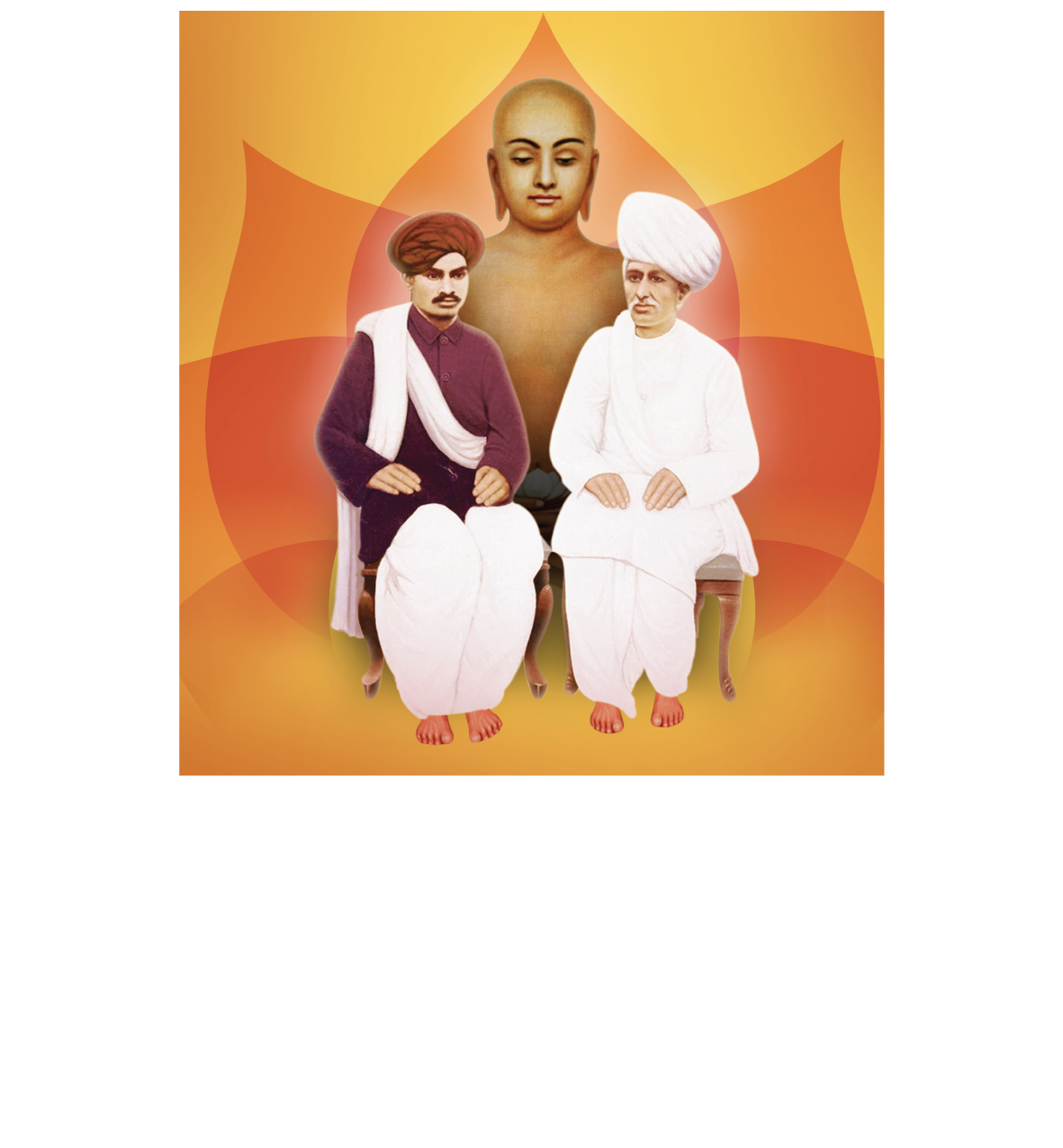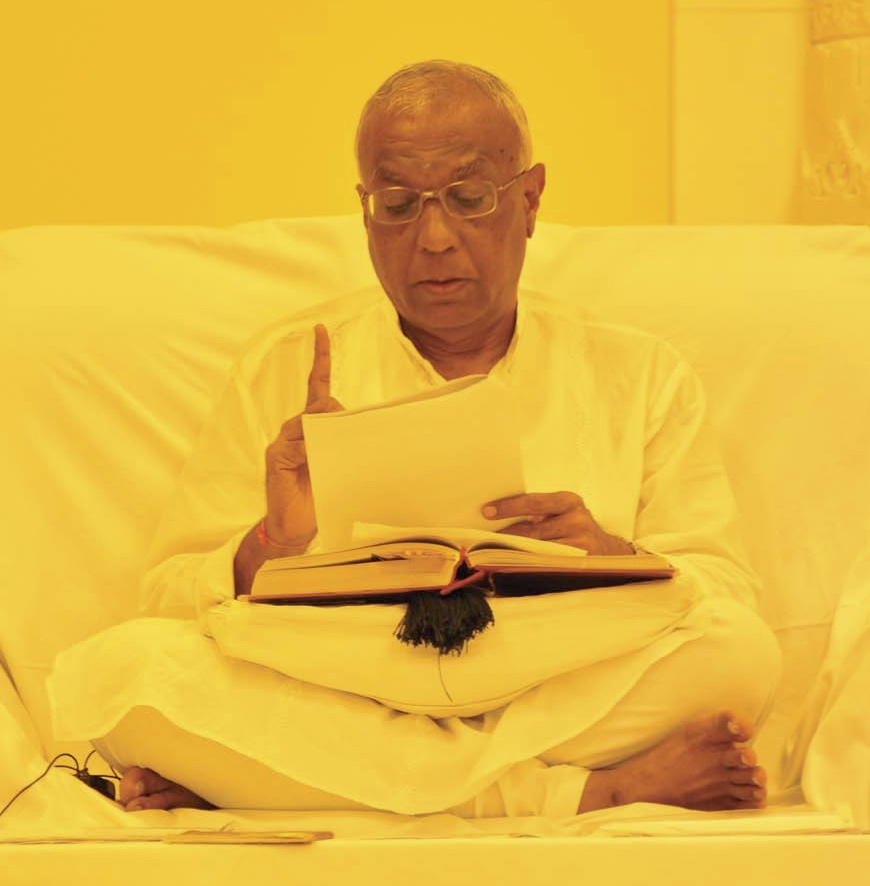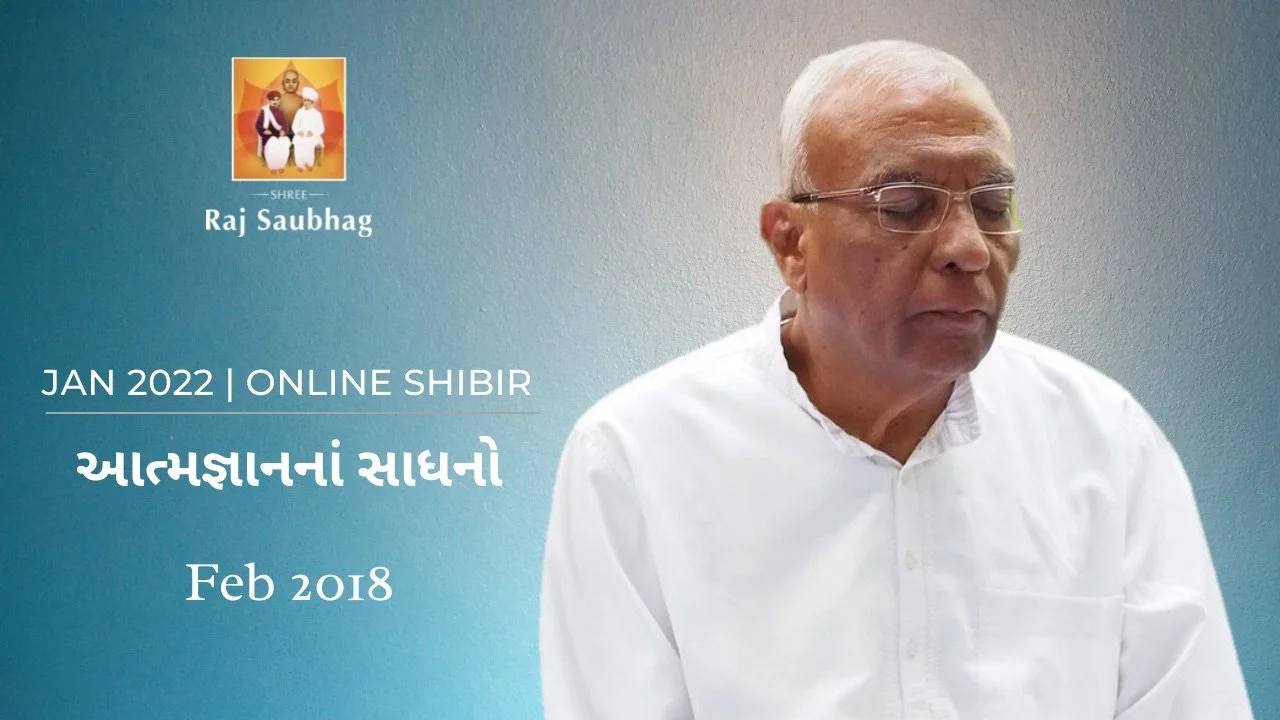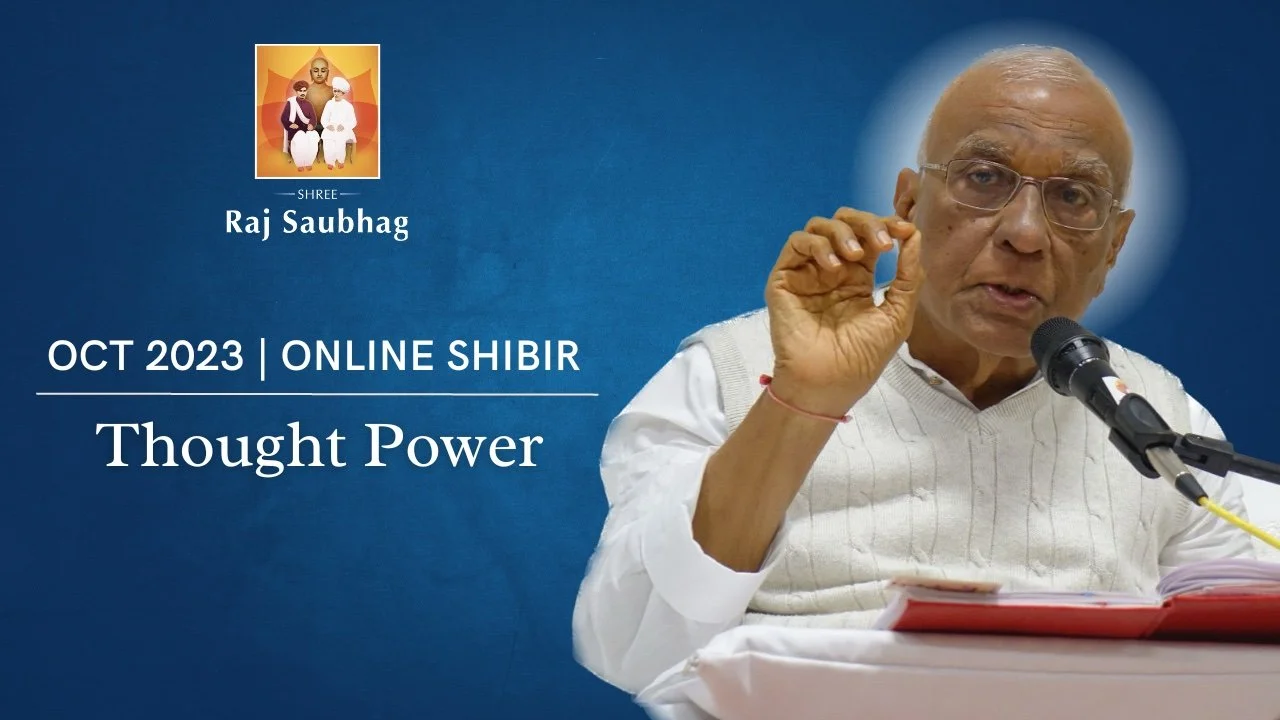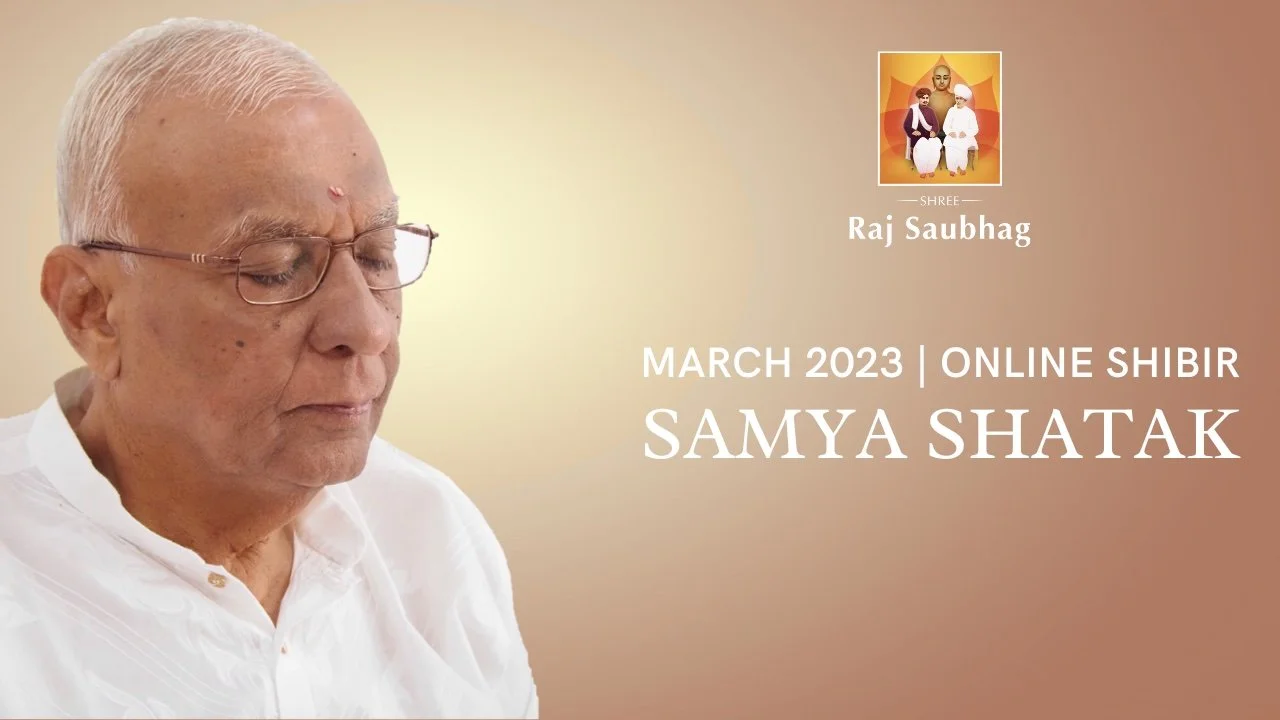Shibirs (Meditation retreats)
To aid aspirants in their practice of meditation, which can often become a difficult task in the midst of worldly lives, meditation retreats or ‘shibirs’ are organised on a monthly basis in the Ashram.
Aspirants who participate in the ‘Maun Aradhana Shibirs’ or silent-solitude retreats observe complete silence for five days and live in solitude. During the day they engage in four hour-long meditation sessions and attend one discourse by Bhaishree where he explains some of the most spiritually significant scriptural compositions.
The feedback that is received after the shibirs truly indicates how deeply transformative these retreats have been for participants.
Dress Code for Shibir
- Fully white coloured clothes (no coloured embroidery / Bharat work on it, white embroidery is ok)
- Dupatta compulsory for females.
- Choose more comfortable bottom wear like salwar, palazzo etc (Avoid tight fitting bottom wear. Leggings / tights will be allowed only if the top is below the knees and it doesn't have a slit.)
Upcoming Shibirs
Aradhana Shibir
Simultaneous to the Ekant Maun Shibir is the Aradhana Shibir. This is open to all, however the meditations are only for those instructed in dhyan. Registration is still required for the Aradhana Shibir but can be done on the day of arrival.
Yuva Shibir
A yuva shibir, held once a year in December, is for those spiritual seekers taking their first steps on the path and is open to all, regardless of age. The Yuva swadhyays or discussions are conducted by Br. Minalben and Br. Vikrambhai in English and simple Gujarati. There is plenty of opportunity for questions as well as meeting Brahmnishts on a one-to-one basis for discussions and clarifications. Registration for the yuva shibir can be done on arrival to the Ashram.
2023/24
Previous Shibirs
Ekant Maun Shibir
Ekant Maun Shibir is a spiritual retreat held for 5 days for intensive spiritual striving in a conducive external environment. Participants stay in silence and in isolation during the entire shibir.
Aspirants who participate in the ‘Ekant maun’ or silent-solitude retreats observe complete silence for five days and live in solitude. During the day they engage in five hour-long meditation sessions and attend one discourse by Bhaishree where he explains some of the most spiritually significant scriptural compositions. Participants provide detailed feedback about their experiences and obstacles in meditation and in-turn receive personalised guidance from the Brahmnishts.
The feedback that is received after the shibirs truly indicates how deeply transformative these retreats have been for participants.Application for shibirs is strict and only open to those Ashram members with dhyan prapti. Acceptance for the shibirs is decided by Param Pujya Bhaishree and Brahmnishts.
Those attending have to abide by strict rules You can download the application form here.
Dress Code for Shibir
- Fully white coloured clothes (no coloured embroidery / Bharat work on it, white embroidery is ok)
- Dupatta compulsory for females.
- Choose more comfortable bottom wear like salwar, palazzo etc (Avoid tight fitting bottom wear. Leggings / tights will be allowed only if the top is below the knees and it doesn't have a slit.)
Ekant Maun Shibir - Rules
Mumukshus are required to arrive the day before the shibir starts, and cannot leave the ashram until the shibir has finished (after the closing ceremony).
Mumukshus must reside in their allocated individual rooms in solitude and in complete silence throughout the shibir.
Eating at night is prohibited. (If there is a medical requirement then permission must be sought by a Brahmnisht who will assess depending on the requirements).
Food must be limited to mealtimes, snacking in rooms is prohibited.
Mumukshus to remain in contemplation and reflection throughout the day and for all activities to be done in such a manner that one remains in constant connection with one’s own soul.
To conduct oneself in a manner to inspire and increase detachment and equanimity will be very useful for the spiritual aspirants who are residing in silence and solitude.
Mumukshus must keenly observe all instructions given by the Brahmnishts who are managing the shibir.
Mumukshus must be seated and present for swadhyay, bhakti, dhyan and satsang, 5 mins prior to the timetabled start time.
Mobile phone use, other phone use, newspapers, letter or other correspondence is prohibited during the shibir. Mobiles phones must be switched off and handed into the office the day before shibir and will be returned after shibir finishes. A list of those who have not handed their phones in is strictly monitored with potential disciplinary action.
Mumukshus may not go outside the Ashram, or the area designated for the Ekant Maun shibir participants.
In breaking any of the above rules, mumukshus must observe any advice or disciplinary action/repentance/penance that the Brahmnishts managing the shibir give.
એકાંત મૌન શિબિરના નિયમો
શિબિરની શરૂઆત થાય તેના આગલે દિવસ મુમુક્ષુઓ હાજર થઈ જવાનું રહેશે અને શિબિર પુરી થાય તે પછી આશ્રમ છોડી શકાશે
શિબિર દરમ્યાન સુમપુર્ણ મૌન સાથે રૂમમાં એકાંતવાસ કરવાનો રહેશે.
રાત્રી ભોજનનો ત્યાગ કરવાનો રહેશે.
યુક્તાહાર / મિતાહાર કરવો, રૂમમાં નાસ્તો કરવો નહિ.
આખો દિવસ આત્માનું અનુસંધાન રહે તે રીતે દરેક ક્રમ ઉપરાંત સતત ચિંતન મનન અને સુવિચારણા કરવાની રહેશે.
મૌનપણે એકાંતમાં રહેતા સાધકને વૈરાગ્ય - ઉપશમભાવ વધે તે પ્રમાણેની ચર્યા ખુબજ ઉપયોગી થશે.
શિબિર સંચાલક તરફથી જે કાંઈ સૂચના આપવામાં આવે તેનું ચુસ્તપણે પાલન કરવું.
સ્વાધ્યાય, ભક્તિ, ધ્યાન અને સત્સંગના સમયે પાંચ મિનિટે પહેલા સ્થાન ગ્રહણ કરી લેવું.
મોબાઈલ, ફોન, છાપું કે પત્ર વ્યવહાર શિબિર દરમ્યાન સંપૂર્ણ બંધ રાખવા.
આશ્રમની બહાર જઈ શકાશે નહિ.
ઉપરોક્ત નિયમનો ભંગ કરનાર સાધકને શિબિર સંચાલક શિક્ષા રૂપે જે કાંઈ પ્રાયશ્ચિત આપે તેનું ચુસ્તપણે પાલન કરવાનું રહેશે
Shibir topic history
2024
Jan - Ishtopdesh
Feb - Samadhi Tantra
March - Yog Shatak
April - Samya Shatak
May - Vairagya Shatak
June - Atmagnan Na Sadhano
2023
Jan - Narad Bhakti Sutra
Feb - Dhyan Adhikar
March - Samya Shatak
April - Dharmabeej
June - Updesh Chhaya 4 & 5
July - Updesh Chhaya 6 & 7
August - Aath Drashti Ni Sajjay
October - Vichar Shakti - Thought Power
December - Shant Sudharas
2022
Jan - Atma Gnan na Sadhano
Feb - Panch Sutra nu Pahelu Sutra
March - Samya Shatak
April - Samyak Darshan
May - Dhyan Adhikar
June - Ishtopdesh
July - Samyaktva na Panch Lakshano
Sept - Bhav Vairagya Shatak
Nov - Yog Shatak
Dec - Atma na Guno
2021
Jan - Yogshatak
Feb - Dharmabeej - Karuna & Madhyasta Bhavna
March - Samyak Darshan
April - Updesh Chhaya 3 & 4
May - Updesh Chhaya 5 & 7
June - Updesh Chhaya 6
July - Updesh Chhaya 8 & 9
Aug - Samadhi Tantra
Oct - Yogshatak
Dec - Narad Bhakti Sutra
2020
Jan - Saamya Shatak
Feb - Samyak Darshan
March -
April -
May - Updesh Chhaya 4 & 5
June -
July - Shant Sudharas - Ashrav and Samvar Bhavna
Sept - Dhyan Adhikar
Oct - Dharmabeej - Maitri & Pramod Bhavna
Dec - Samya Shatak
2019
Jan - Dharmabeej
Feb - Shant Sudharas
March -
April - Dravya Sangrah
May - Dharmabeej
June - Adhyamnasaar
July - Ishtopdesh
Sept - Yog shatak
Nov - Samadhi Tantra
Dec - Samyaktva na 67 Bol
2018
Jan - Moksh Marg Prakash
Feb - Atma Gnan Na Sadhano
March - Ishtopdesh
April - Yogshatak
May (UK) - Updesh Chhaya 4, 5, 6
June - Dharmabeej
July - Samyak Darshan
July - Saamya Shatak
Aug - Adhyatmasaar
Oct - Yogshatak
Dec - Vairagy Shatak
2017
Jan - Updesh Chhaya 6, 8 & 9
Feb - Updesh Chhaya 10, 11
March - Updesh Chhaya 12, 13, 14
April - Panchastikay
May - Panchastikay
June - Vyakhyansar 1 (1 - 101)
July - Vyakhyansar 1 (1 - 101)
Sept - Sanadhi Sukha
Dec - 67 Bol Sazaay
2016
Jan - Samya Shatak
Feb - Dhyan Adhikar
March - Dravya Sangrah
April - Panch Sutra Nu Pahelu Sutra
May - Dharmabeej
June - Ishtopdesh
July - Samaysaar
Nov - Yogshatak
Dec - Updesh Chhaya 3, 4, 5 & 7
2015
Jan -
Feb -
March - Ishtopdesh
April -
May -
May (UK) - Shant Sudharas
June -
July - Tatvarthadhigam Sutra (Adhyay 1 - 5)
Aug - Tatvarthadhigam Sutra (Adhyay 6 - 10
Oct - Yogshatak
Dec - Samyag Darshan
2014
Jan -
Feb -
March -
April -
May -
June -
July -
Sept -
Nov -
Dec -
